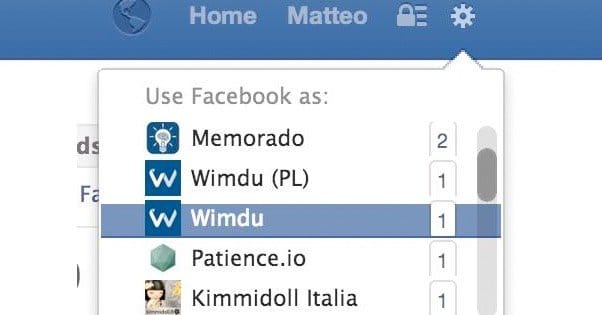 Written by ContentPowered.com
Written by ContentPowered.com
If you just started a business, and you asked me if you should make two Facebook pages, I would probably look at you as if you had two heads. You’d have to, to want to manage two of the things. It’s not sensible. All you would do is split your potential audience into two segments, likely unequal, and lose focus.
On the other hand, there are a few good reasons to have more than one Facebook page for your business. They’re just very rarely anything that a small business can consider.
Multinational or Regional Pages
See? I don’t know of any small businesses that have different divisions for different continents, but who knows, maybe there’s an exception out there.
For an example of this, take a look at Coca-Cola. They have their normal Coke page, then they have other pages for other areas, like Coke Australia.
The main reason a business like Coke would want to divide up their pages is for specific deals and promotions. A deal for American Coke drinkers might not apply to Australian beverage fans, so it doesn’t make sense to build one unified audience.
This is also a case where a higher follower count isn’t necessarily a good thing. If both American and Australian users followed the page, but the page posted primarily to an American audience, the Australian audience would cease being an engaged audience. Coke would lose the benefit of having those followers. By separating them into two audiences, they can maintain engagement separately.
Franchise Pages
The second reason a business might run multiple Facebook pages is franchising. They want to have a national presence, but they want each individual franchise location to have their own domain to control.
One example of this 24 Hour Fitness. They have one primary brand page, and then every individual location has a local page. Most restaurant franchises do this as well.
This gives the same benefit to the franchise as the regional pages do for corporations. Essentially, they have one central page for everyone to follow and like. It aggregates reviews, it’s a central hub for advertising and announcements, and it works just like any other Facebook business page.
Then they have individual franchise location pages, which accumulate local reviews and serve as boards for individual deals and promotions. If a single location is closing for renovations, they don’t need to clutter up the main page with announcements. They can also handle customer service on a local basis, with the option of escalating to the main page if necessary.
Business Divisions
This one you can look at Coke again, or you can look at a brand like Nike. Nike has a general Nike page, and pages for Nike Running gear, and Nike Air Max, Nike Basketball, and much more.
This is primarily useful for massive brands that want to keep individual product lines separate. I wouldn’t recommend it for a small business selling two or three pieces of software, for example; you don’t have the global presence to support product line pages. Nike has that support. Coke does as well, with pages for Coke Zero and Diet Coke, among others.
Dedicated Customer Support
This one isn’t a technique you see on Facebook, but it’s worth mentioning because of how prominent it is on Twitter. It’s not uncommon to have one Twitter account for your marketing and communications, with a second dedicated account specifically for customer service.
The primary benefit of this method are two-fold. First, it makes it easier to handle customer service. You have two different accounts managed by two different teams. You don’t need your marketing team to hand off messages to the customer service team, with all the delay that implies.
The second benefit is just to segregate customer service clutter. It helps businesses keep their professional profile appearance clean, so new users aren’t bombarded with potentially negative customer reviews; that’s all on the side account.
Managing Multiple Pages
If you’ve decided that your business is big enough to want to run more than one Facebook page, you have to decide how you’re going to do it. Are you going to have one dedicated social media team operating it? Are you going to outsource it? Are you running them all yourself, or are you letting individual franchises run their own?
If you’re hiring a social media company, you don’t need to do much else. Just work with them, they’ll handle the day to day operations.
If you’re letting franchises run their own pages, make sure to create a document of guidelines. Cover photos should be X image, profile pictures should be Y, your About information should include facts A B and C, and so forth. This helps you maintain a dedicated brand image without diluting it based on individual manager preferences or skills.
If you’re running all of the pages from one central location with one team, or just by yourself, they’ll all be tied to one account. With this account, you’ll want to set up the Facebook Business Manager. The Business Manager is made for any business running more than three pages, or any business running multiple ad accounts. It’s quite useful, and gives you a lot of features to streamline managing your pages.
You can, and probably should, use the business manager for franchising. This allows you to set other user accounts as managers of individual pages, without giving them so much control that you have to worry about account security, vandalism, hacking or other digital issues.



I have a small importing business with two distinct private labels brands. I am just not sure whether to have one parent FB page featuring both brands (which are both quite different) or to have two separate pages – one for each brand/range of products. My preference would be to somehow combine the two to save work, and do cross-promotions (because while each rand/range of products is very different they both relate to families), but I just don’t know what is “right” from a marketing perspective. Advice would be greatly appreciated thanks.
Thanks a lot for sharing the info. It is very useful.